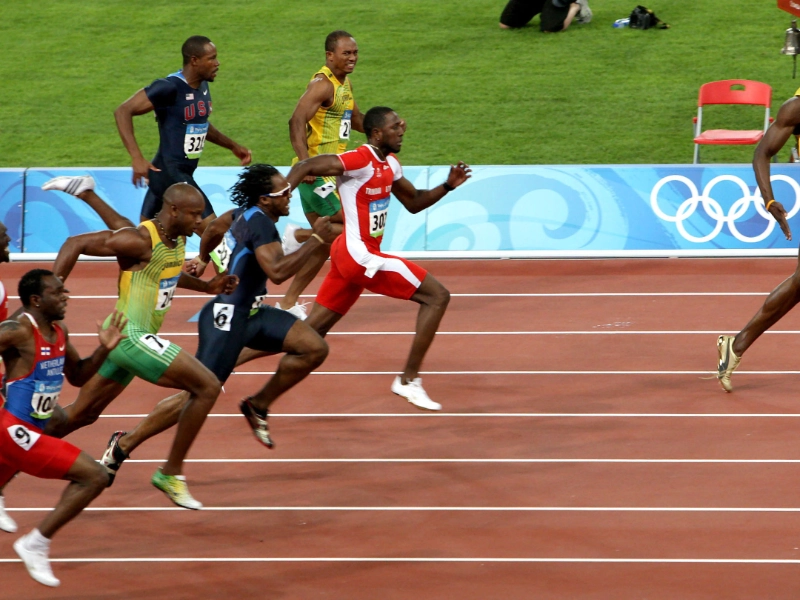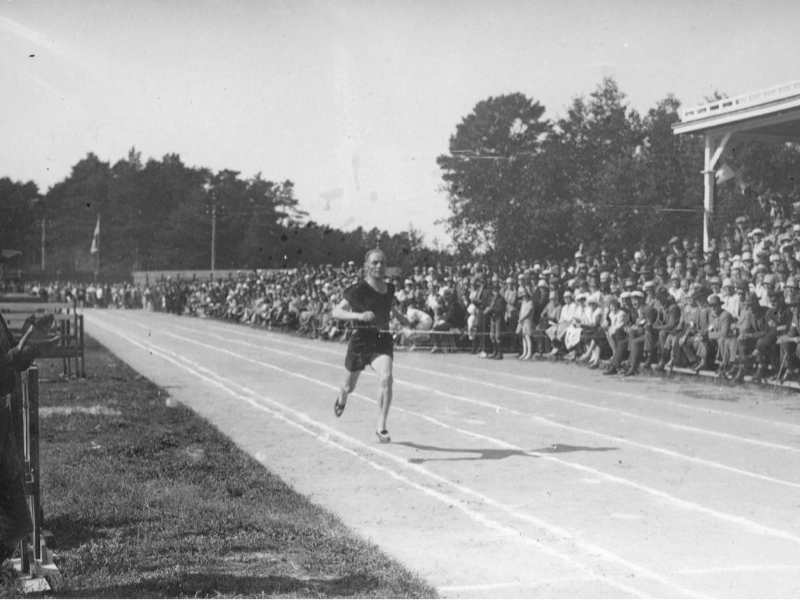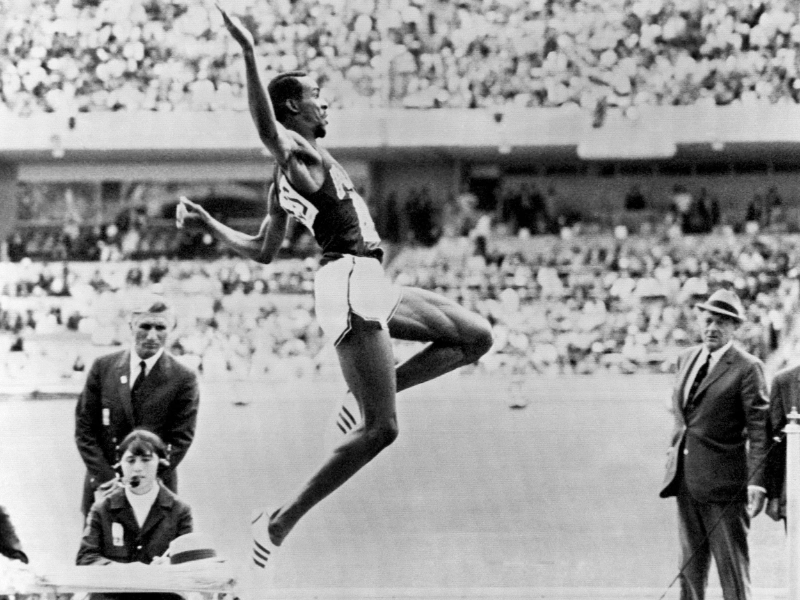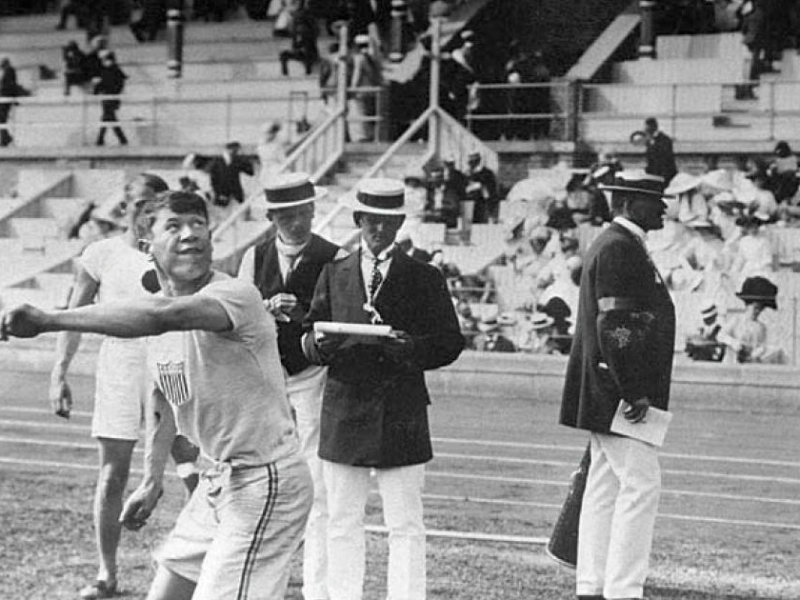Athletics Records That Seem Unbreakable
Records in the realm of sports are evidence of human success and the unrelenting quest of perfection. Although many records are broken annually, others endure time and seem to be unbreakable given the great talent and conditions needed to surpass them. Some of the most amazing athletic records still inspiring wonder and respect are examined in this page. From sprinting to distance running, these marks show the height of athletic ability and the athletes' commitment who established them.
Usain Bolt's 100-meter dash
 Advertisement
Advertisement
Among the most famous sports accomplishments are Usain Bolt's marks in the 100-meter sprint. Bolt, who ran the race in Berlin during the 2009 World Championships, finished shockingly in 9.58 seconds. Along with exceeding past standards, this record highlighted Bolt's amazing speed, force, and technique. His unusual mix of height and stride length let him run faster than any sprinter before him. The high degree of talent and preparation needed to even approach Bolt's time makes this record especially intimidating to break. Many athletes have attempted; few have come close. Although sprinters are becoming better, the margin for mistake in the fiercely competitive 100-meter dash is very narrow. Some think records could finally fall with improvements in training, nutrition, and technology; but, Bolt's time is still the gold standard that looks almost impossible to exceed.
Paavo Nurmi's 5000-meter record

Middle-distance runner from Finland Paavo Nurmi achieved an amazing record in the 5000 meters that has held since 1924. His 13:13.6 time is a benchmark that has stayed unbroken almost a century. Nurmi excelled in several distances and was renowned for his original training techniques and great adaptability. He distinguished himself from his rivals by keeping a blazing speed while controlling his energy level. Breaking Nurmi's record presents a mental as well as a physical challenge based on the mental strength needed to maintain such a high degree of performance over time. Although contemporary competitors have tried to surpass this mark, Nurmi's mix of speed, endurance, and smart racing still elusive. Though training methods change, the dream is still alive that one day some athlete would step up to challenge this legendary mark.
The Long Jump of Bob Beamon

Set during the 1968 Mexico City Olympics, Bob Beamon's long jump record is a moment frozen in sporting memory. With an amazing 8.90 meters—a leap well ahead of its time—Beamon leaped almost almost surrealistically. Being over two feet longer than the previous record, this one not only exceeded past successes but also set a new benchmark. The setting of Beamon's jump adds to its amazing quality. Mexico City's elevation presented special circumstances that helped with the jump, but Beamon's pure physical talent and technique were unparalleled. Although competitors today have come near, the combination of skill, strength, and psychological strain needed to beat this record makes it a difficult challenge. The record remained for 23 years. Still a symbol of what is possible in sports, Beamon's leap motivates next generations of athletes to challenge human performance limits.
Jim Thorpe's decathlon score

Among the most respected marks in sports, Jim Thorpe's decathlon performance from the 1912 Olympics is still With an incredible 8,424 points, Thorpe's total exceeded decades' worth of marks. One of the best athletes of all time, his remarkable adaptability in ten different events highlighted his all-around agility. Often regarded as the toughest test of athletic skill, the decathlon calls for a special mix of speed, strength, and endurance. Breaking Thorpe's record would call not only top physical conditioning but also mastery of a broad spectrum of talents. Although modern athletes have made great progress in training and specialization, the whole character of Thorpe's performance still presents a great obstacle. His record reminds us of the amazing possibilities of human agility and the challenge of performing with such well-roundedness.
Olympic medals from Michael Phelps
With an incredible 23 gold medals, Michael Phelps boasts the highest Olympic gold medal total among all athletes. His unmatched talent and work ethic are evident in his swimming supremacy during the 2004, 2008, 2012, and 2016 Olympics. Phelps's successes go beyond mere medal count to include the vast range of races he competed in—from the 100-meter butterfly to the 200-meter freestyle. Breaking Phelps's record presents a difficult mix of talent, training, and opportunity. Every four years, the Olympics call on an athlete to not only compete at their best but also keep in top form and free from injuries across their career. Although fresh swimming stars keep developing, Phelps's degree of consistency and brilliance during his career sets a very high standard. His swimming legacy is strong, and his medal count represents a standard for next generations of sportsmen.
Jesse Owens's four Gold Medals
Winning four gold medals in track and field events, Jesse Owens created history at the 1936 Berlin Olympics. His remarkable agility and resiliency were evident in his successes in the 100-, 200-, long jump, and 4x100 meter relay. During a turbulent era in history, Owens's successes not only broke records but also subverted accepted ideas of race and superiority. Owens's achievements mark a turning point in athletics and society, therefore transcending mere statistics. Although numerous athletes have taken home several gold medals, Owens's record is especially difficult to match given the events he excelled in. Every event calls for particular knowledge and ability; it is difficult to achieve gold in all four. Athletes now find inspiration in Owens's reputation as a trailblazer in sports, which reminds us of the ongoing force of will and excellence. These records remind us of the incredible powers of sportsmen and their continuous quest of excellence. These amazing successes signal turning points in the history of sports, motivating next generations to aim for the apparently unbreakable even as new talents keep developing and training methods change.








